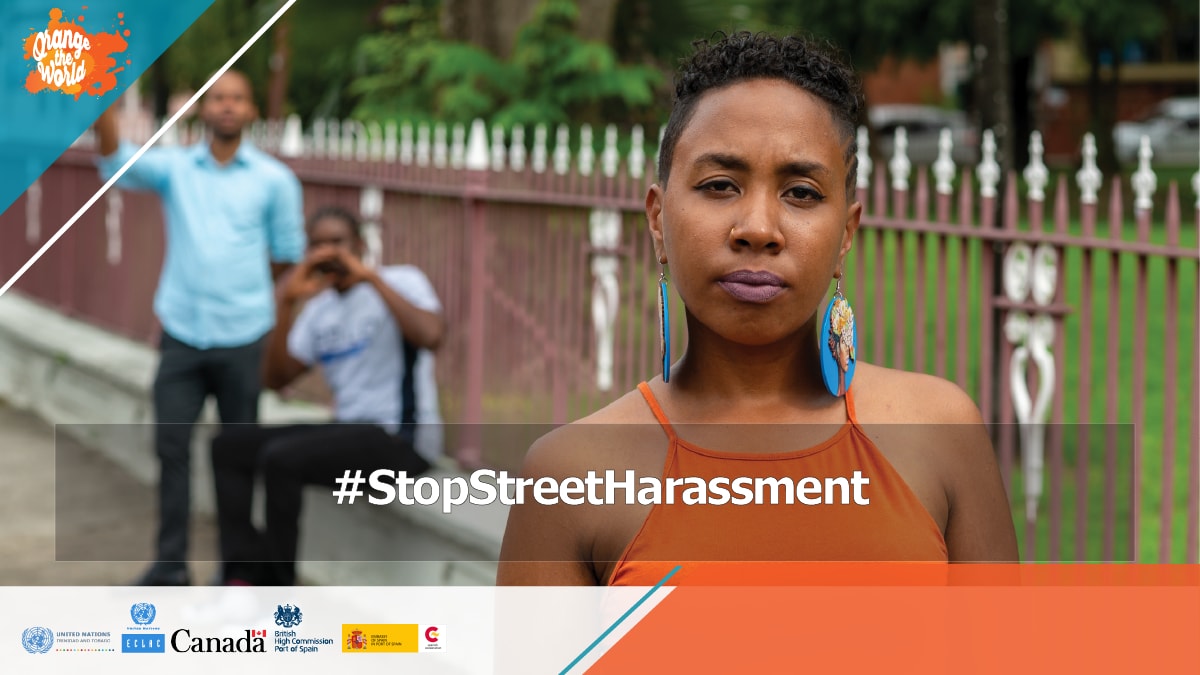ECLAC Caribbean tackles street harassment in Trinidad and Tobago
Work area(s)
Topic(s)
Street harassment is a commonplace experience for women and girls in Trinidad and Tobago. Statistics do not exist on its prevalence, but women and girls report that it is a daily experience which is tolerated as a social norm.

Street harassment comes in many forms, ranging from unwelcome sexual advances and requests for sexual favours to other verbal or physical conduct of a sexual nature, such as comments on women’s appearance, `sooting’ and stalking. In Trinidad and Tobago, women migrants, asylum seekers and refugees are particularly vulnerable to street harassment, exploitation and other forms of gender-based violence (GBV).
This year, ECLAC Caribbean, in collaboration with the United Nations Country Team and in partnership with the British and Canadian High Commissions, the Embassy of Spain, the Ministry of Education and the Trinidad and Tobago Police, will commemorate the 16 Days of Activism against GBV (25 November-10 December) with an initiative to raise awareness on the need to address street harassment in Trinidad and Tobago.
The campaign will include digital billboard advertising across the country and the distribution of posters for display in secondary schools and police stations nationwide. The billboards and posters share a common message: “Let women and girls walk the streets in peace. Comments on their bodies can make them feel unsafe. It’s all about respect!” Educational videos featuring Calypso Rose’s song “Leave me alone” and a call to action for men and boys will also be shared on social media along with other positive messaging. Beyond the 16 Days of Activism against GBV, ECLAC proposes to partner with secondary schools to facilitate productive discussions on street harassment and will explore other opportunities to promote the campaign’s message.
While street harassment sits on the lower end of the spectrum of GBV, it is a “gateway offence” to more serious violence against women. When street harassment is tolerated, it fuels harmful attitudes towards women which create a fertile environment for other forms of GBV. Street harassment negatively impacts women’s safety, mobility, autonomy, economic opportunities and freedom of expression. The fear brought by street harassment negatively influences the decisions of women and girls on appearing alone in public, using public transportation, and affects equal access to recreational and livelihood’s opportunities in outdoor public spaces. It prevents women from enjoying the right to equal treatment and living in dignity—free of fear, violence and discrimination. It also has harmful effects on men and boys, such as forcing males to fit hyper-masculine norms.
The 16-day campaign aims to educate perpetrators of street harassment about its harmful effects and spark a national conversation encouraging respect for women and girls. The campaign will contribute to the reduction of street harassment, elimination of gender inequality and fulfilment of women’s rights and autonomy in Trinidad and Tobago.
Subregional headquarter(s) and office(s)
Type
Country(ies)
-
Trinidad and Tobago
Contact
Alexander Voccia
- alexander.voccia@eclac.org
- 868 224 8067
Denise Balgobin
- denise.balgobin@eclac.org
- 868 224 8075